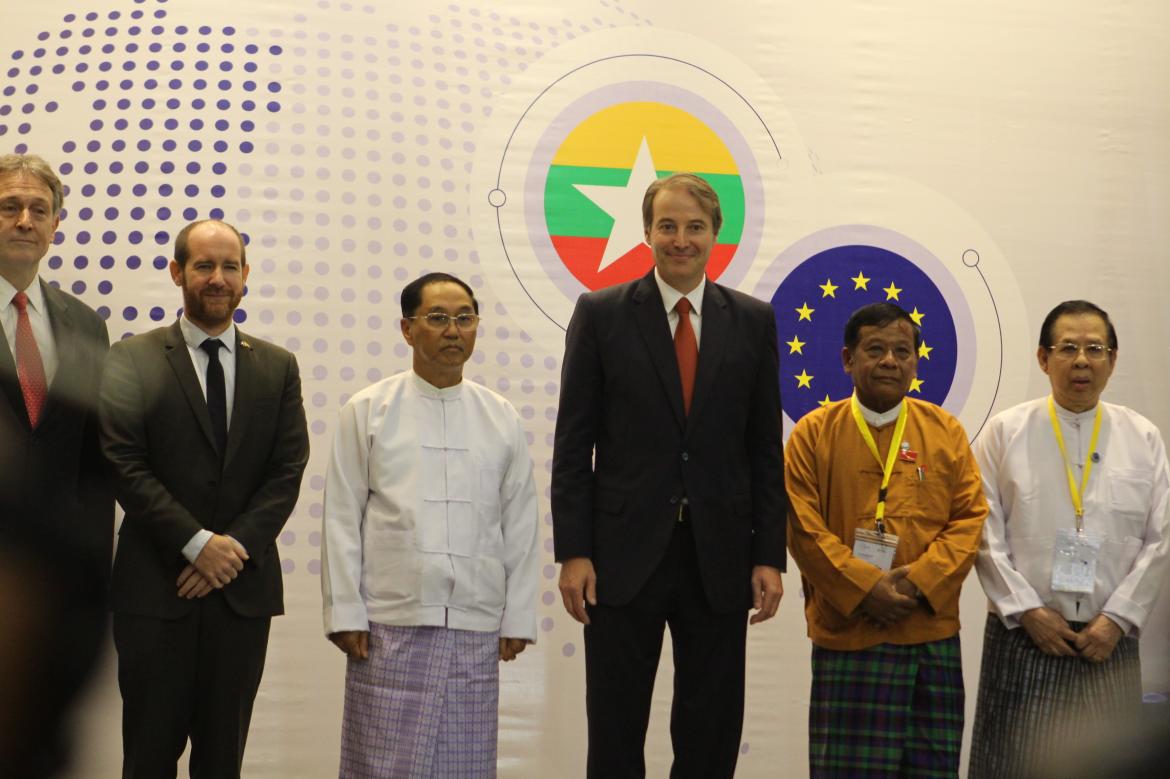The new companies law will transform the business landscape in Myanmar to attract more investments in priority sectors including agriculture, infrastructure and manufacturing
8 Jun 2018
NAY PYI TAW — The new companies law will “transform” the business landscape in Myanmar when it comes into effect on August 1, Vice President U Myint Swe has told foreign business leaders.
Speaking at the opening of the Myanmar-EU Economic Forum in Nay Pyi Taw this morning, Myint Swe said the Myanmar Companies Law was one of several important reforms undertaken by the current government, including the introduction of a new investment law in 2016.
He said the government was hoping to attract more investment in priority sectors, including agriculture, infrastructure and manufacturing.
“Myanmar’s new investment law offers investors a more transparent, more liberalised and more protected investment environment,” he said.
“The new companies law also ensures the transformation of the corporate landscape.”
The companies law will enable foreigners to acquire up to 35 percent of Myanmar companies, providing a new potential source of financing for domestic firms. It will also improve corporate governance standards, while at the same time cutting red tape.
Mr Kristian Schmidt, the European ambassador to Myanmar, said there had been many positive changes in Myanmar’s economy in recent years but investors were keen to see the reforms continue.
“The intellectual property law is in the pipeline and we hope that it will soon be approved by parliament – that will be another important step,” he said. “These laws are fundamental factors to attract more investors.”
He said European companies also faced a range of challenges in Myanmar, and wanted to see a more level playing field, improved rule of law, less red tape and government that is free from corruption.
But Schmidt said the “spectacular” growth in bilateral trade between Myanmar and EU was evidence of the benefits that economic cooperation could bring.
Between 2013 and 2017 trade increased almost four-fold, from 568 million euros to more than 2 billion euros, largely on the back of garment exports from Myanmar.
Schmidt said the garment industry was “a success story” and today employed about 400,000 people, of whom 93 percent are women.
The 2013 decision by the European Union to bring Myanmar back into its Generalised Scheme of Preferences has been crucial for opening up European markets to the garment industry.
But Schmidt warned that GSP status, as well as aid and other cooperation, could not be “taken for granted, and required progress on human rights and fundamental freedoms”
“We are paying attention to freedom of media, right to freedom of assembly, peace process, respect for ethnic minorities and the situation in Rakhine State,” he said.
“I think it’s important for everyone to understand, including Myanmar’s private sector, that honest business will thrive in a democracy where rights are respected.
“When a country starts sliding backward on democracy, and human and social rights, trade and investment will also suffer. Investors may withdraw.”
(Frontier Myanmar: https://frontiermyanmar.net/en/companies-law-to-transform-business-landscape-u-myint-swe )











